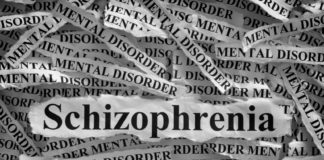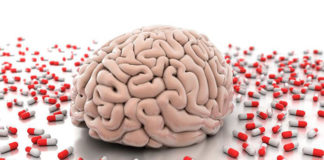Tag: Schizophrenia
What is it Like to Experience a First Crisis in Psychosis?
Study explores the emotional and embodied experience of individuals undergoing a first crisis in psychosis.
Review Finds FDA Approval of Digital Antipsychotic Misguided
The approval of the digital antipsychotic may open the door for more pharmaceutical company profits without evidence of benefits to patients.
Discontinuation of Antipsychotics Improves Cognitive Functioning
A study, recently published in Psychological Medicine, examined the cognitive functioning of individuals with schizophrenia who discontinued antipsychotics, and those who maintained their antipsychotic...
Researchers Propose “Metaphor Analysis” for Understanding the Experiences of People who...
A new study, published in the journal Psychosis: Psychological, Social and Integrative Approaches, explores ways that metaphor operates in the lived-experiences of individuals who...
Study Finds Mixed Results for Peer-Supported Open Dialogue in the UK
New qualitative study seeks to examine the implementation of the Open Dialogue approach in the UK.
De-Othering “Schizophrenia” by Placing it in Socio-Historical Context
Understanding schizophrenia as a non-enigmatic, understandable human experience goes against a history of institutional “othering” that has sustained psychiatric legitimacy and further marginalized service-users.
Sodium Nitroprusside Shows No Efficacy in Schizophrenia Treatment
Researchers question biases of preliminary trials that found that sodium nitroprusside, an antihypertensive drug, has positive effects on schizophrenia symptoms.
The Role of Racial Bias in the Overdiagnosis of Schizophrenia
Researchers detect disparity between white and African American patients diagnosed with schizophrenia when symptoms of a mood disorder are present.
Researchers Make the Case to Rename Schizophrenia
The authors outline reasons for renaming schizophrenia and the way a change can reform practice.
New Study Investigates Cannabidiol (CBD) for Psychosis
A new study examines the effects of CBD as an adjunct therapy to antipsychotic medication for patients diagnosed with schizophrenia.
Non-Pharmacological Interventions More Effective For Health in Schizophrenia
Review compares the effectiveness of pharmacological and non-pharmacological interventions for improving physical health outcomes in people diagnosed with schizophrenia.
Better Outcomes Off Medication for Those Recovered from First-Episode Schizophrenia
A new study has found that of 10 people who were fully recovered from their first episode of schizophrenia (FES), those not taking antipsychotics did better in terms of cognitive, social, and role functioning—and reached full recovery more quickly.
Researchers Warn of “Brain Atrophy” in Children Prescribed Antipsychotics
Researchers discuss the evidence that antipsychotic medications may cause brain atrophy in children, whose brains are still developing.
Two-Thirds of Schizophrenia Patients Do Not Remit on Antipsychotics
A new analysis of antipsychotic treatment of schizophrenia (published in Schizophrenia Bulletin) has found that two-thirds of patients treated this way do not experience symptom remission.
New Research on Patient-Centered Deprescribing for Antipsychotics
Researchers review the risks and benefits of deprescribing from antipsychotic drugs and advocate for a patient-centered approach to tapering.
The Spanish Yoghurt Farm That Cultivates Better Mental Health
From Reuters, "'At La Fageda, these people don’t have a label – they are totally integrated – and they start improving, reconstructing themselves without...
“Diagnostic Dissent”: Experiences of Individuals Who Disagreed With Their Diagnosis
Researchers investigate the first-person experiences of people who disagreed with their psychiatric diagnosis of psychosis.
New Research Suggests Brain Abnormalities in ‘Schizophrenia’ May Result From Antipsychotics
Study finds that reduced cortical thickness and brain surface area associated with 'schizophrenia' may result from antipsychotic drug use.
FDA Defends Decision to Approve Digital Aripiprazole
Members of the U.S. Food and Drug Administration’s Psychiatry Products division go on the defensive in a new article, responding to concerns about the agency’s approval of digital aripiprazole.
Early Attention to Life Circumstances and Relationships Improves Outcomes for Psychosis
Coordinated care with employment support and family therapy leads to superior outcomes for those diagnosed with psychotic disorders.
The Largest Health Disparity We Don’t Talk About
From the New York Times: Americans with depression, bipolar disorder or other serious mental illnesses die 15 to 30 years younger than those without mental...
How to Talk to Somebody Who is Hearing Voices
In this piece for MetroUK, Lucy Nichol explains how to best support people in "psychosis," emphasizing the need to believe individuals who hear voices and recognize...
ISPS Australia’s Response to Schizophrenia Awareness Week: Drop the Label!
It really is time to drop the label of schizophrenia, and ISPS Australia invites us to consider just that, in favour of understanding human experience and removing the impediments to a person making sense of their experience — impediments that exist due to the primarily biomedical perspectives that continue to dominate the mental health systems.
“25 Years of Madness and Modernism”: A Review
In this piece for the Centre for Medical Humanities, James Whitehead reflects on the 25th anniversary celebration of the publication of Louis Sass's Madness and Modernism.
"A...
The Sound of Madness
From Harper's Magazine: People who hear positive, encouraging voices often seen as spiritual guides or messages and people diagnosed with schizophrenia are usually thought of as...
































